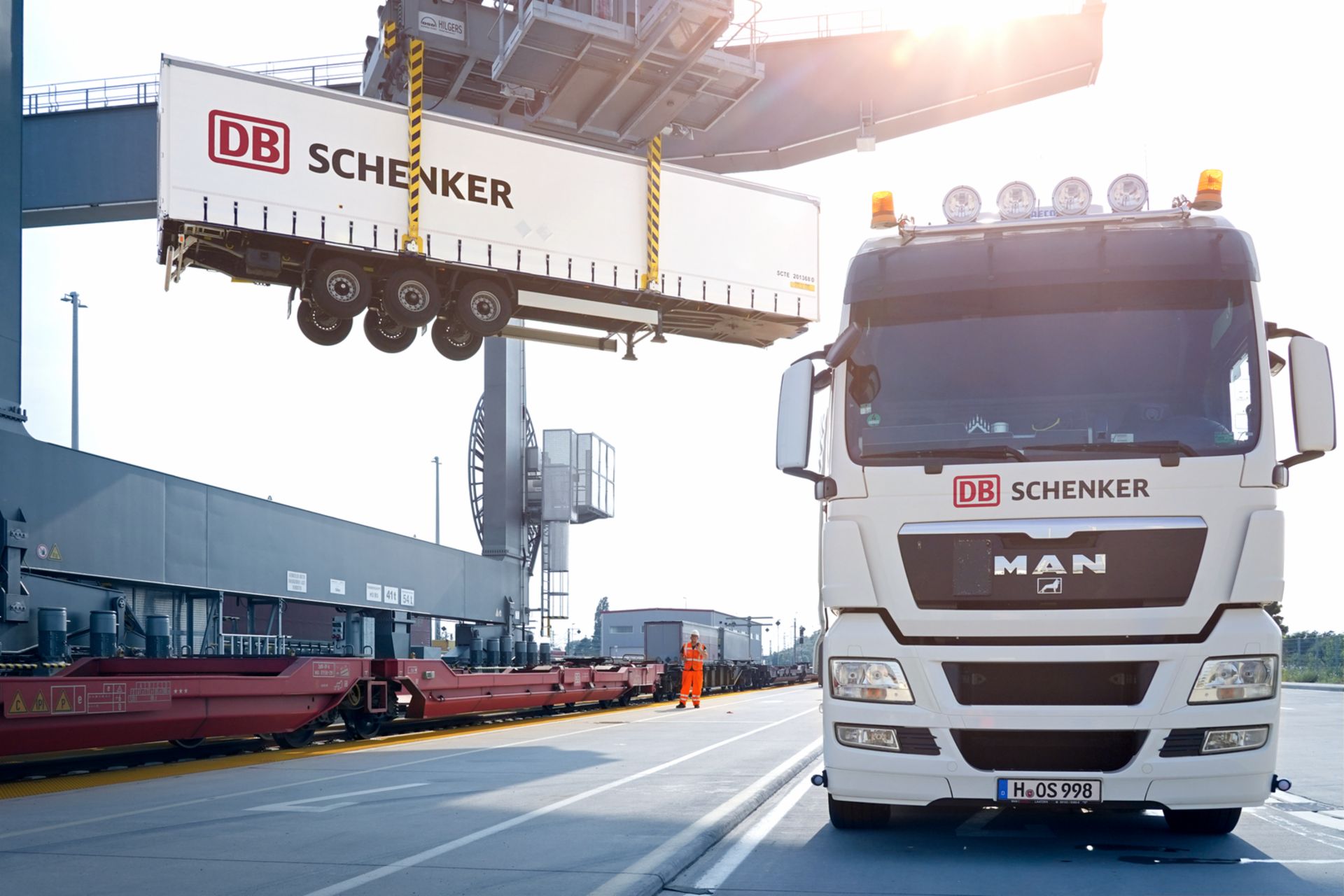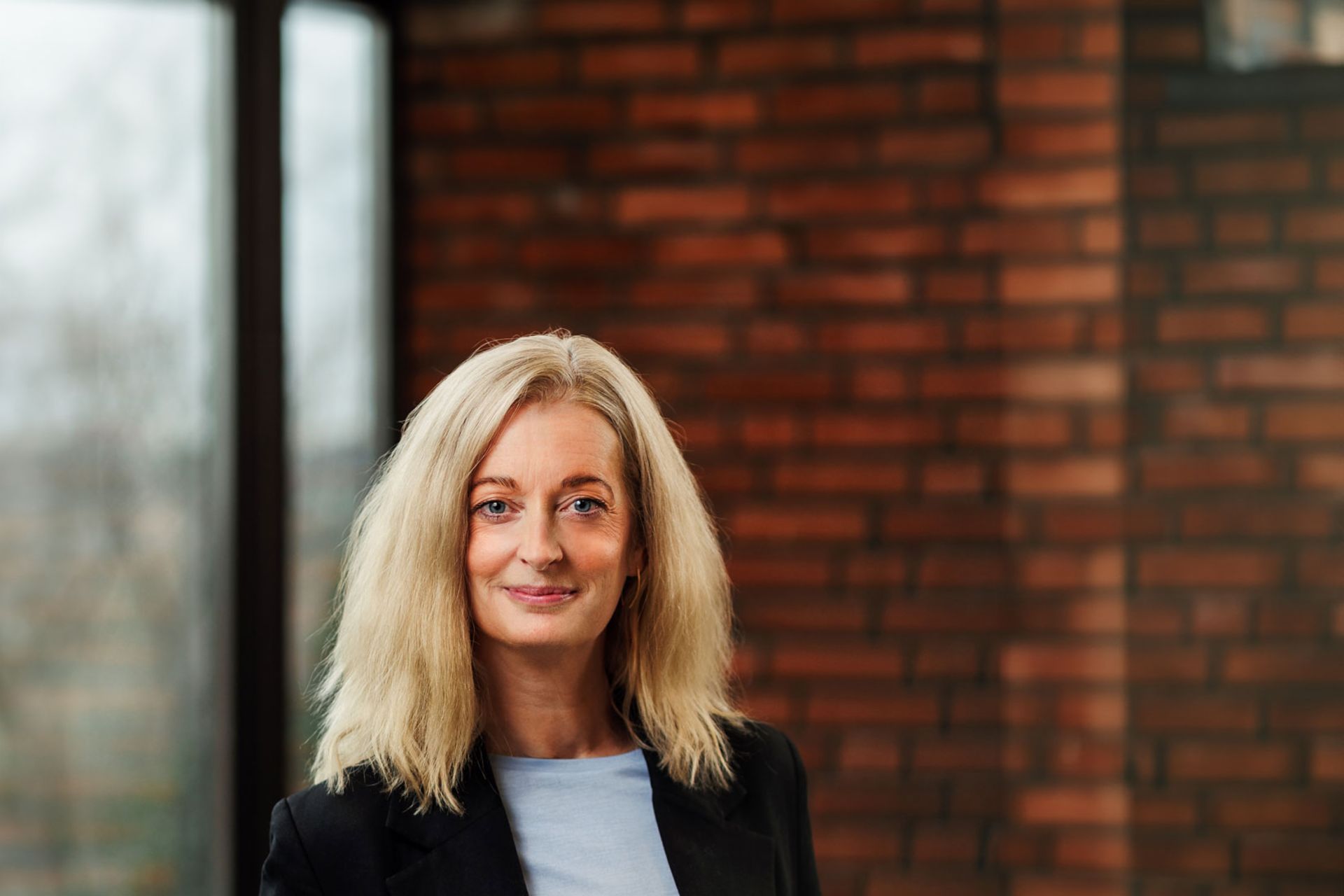Starting in 2040, every new truck sold by the TRATON GROUP should be free from fossil fuels. The all-electric MAN eTGM represents a major leap forward in achieving this goal, and shows today what the transportation of tomorrow will be like. Here are four examples from four different countries.
The future of the TRATON GROUP is electric. The Group aims to be carbon-neutral by 2050, with only fossil fuel-free vehicles sold starting in 2040. The electric truck from Scania already boasts an electric range of 250 kilometers for use in urban settings. With the launch of series production of the e-Delivery electric truck, Volkswagen Caminhões e Ônibus is blazing a trail on the Brazilian market. Navistar is supplying all-electric IC Bus school buses in Canada. And the all-electric MAN eTGM distribution truck has been available in low-volume production since late 2019.
The MAN eTGM distribution truck offers a range of roughly 190 kilometers and high-speed charging in one hour, not to mention no local exhaust emissions and virtually silent driving. As such, this truck opens up new possibilities when it comes to urban delivery operations. Four examples show how it helps boost sustainability for customers all over Europe: a cardboard box manufacturer in Germany, a supplier of organic dairy products in Copenhagen, the Norwegian postal service in Oslo, and the SPAR Group in Switzerland.
Germany: when the boss goes green
With a wave, Stephan Potthoff-Wenner cycles on to the company premises on his e-bike. Entrepreneur Potthoff-Wenner is the third generation to head the Friedrich Wenner Versmolder Vollpappen-Verarbeitungswerk family business in East Westphalia, which manufactures cardboard packaging boxes. He is passionate about testing sustainable future technologies himself and leads by example when it comes to making processes eco-friendly. The company’s numerous measures include, for instance, sustainable waste management and the optimization of energy efficiency in production. In the words of Potthoff-Wenner: “Our children, too, should be able to admire the beauty of nature. This is the most valuable gift we can pass on to them.”
Potthoff-Wenner is reducing the carbon footprint of his own ever-growing enterprise by means of photovoltaic installations and a combined heat and power plant, which allows the company to generate 40 percent of its energy needs in-house. Recently, the firm also started using green electricity to charge its new MAN eTGM, which acts as an on-site shuttle, transporting the boxes to the next stage of the production process. “The vehicle fits in well with our workflows,” explains Warehouse Manager Matthias Paul. Its battery is charged overnight, when no work is being done, and thanks to a range of 190 kilometers, a single charge is enough for several days. In the future, the firm’s entire vehicle fleet is intended to run on electricity, and then the boss’s e-bike and the MAN eTGM will have plenty of company.
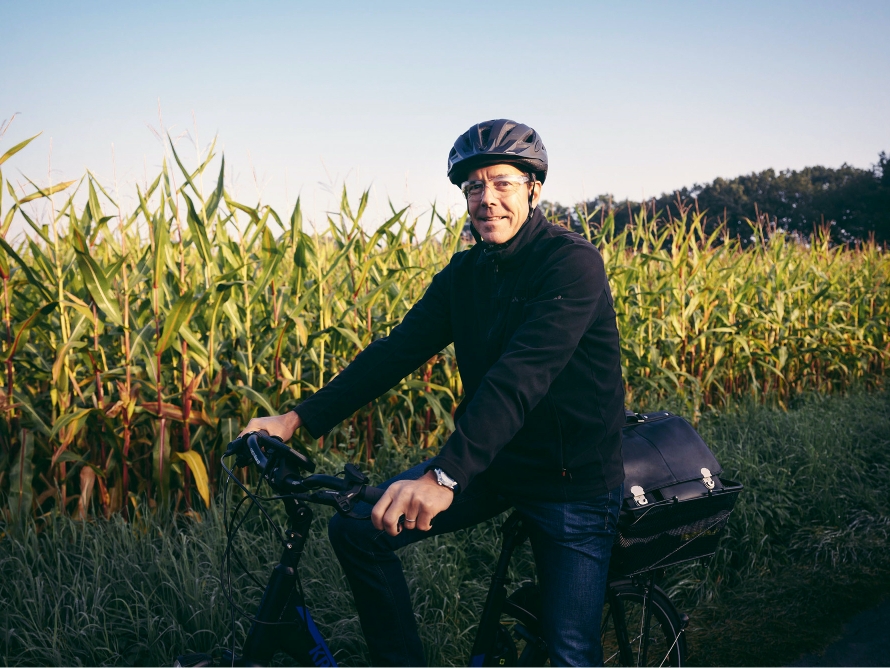
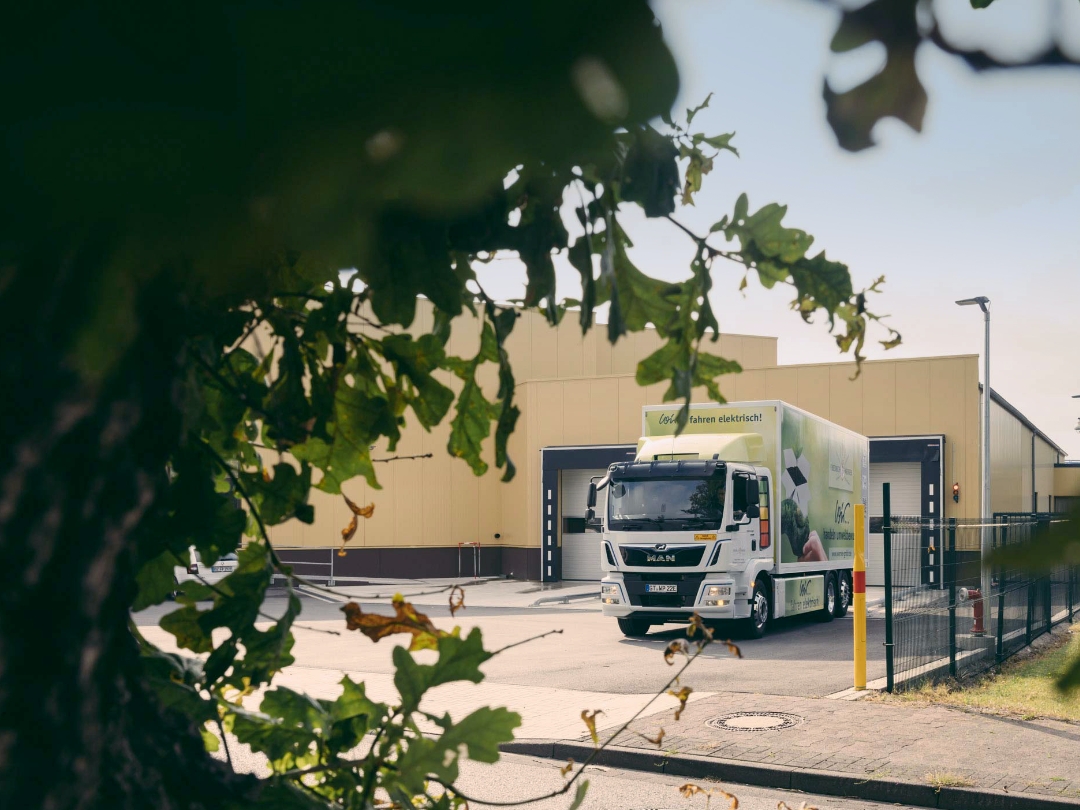
Stephan Potthoff-Wenner, who heads cardboard box specialist Friedrich Wenner GmbH, enjoys trying out sustainable future technologies for himself.
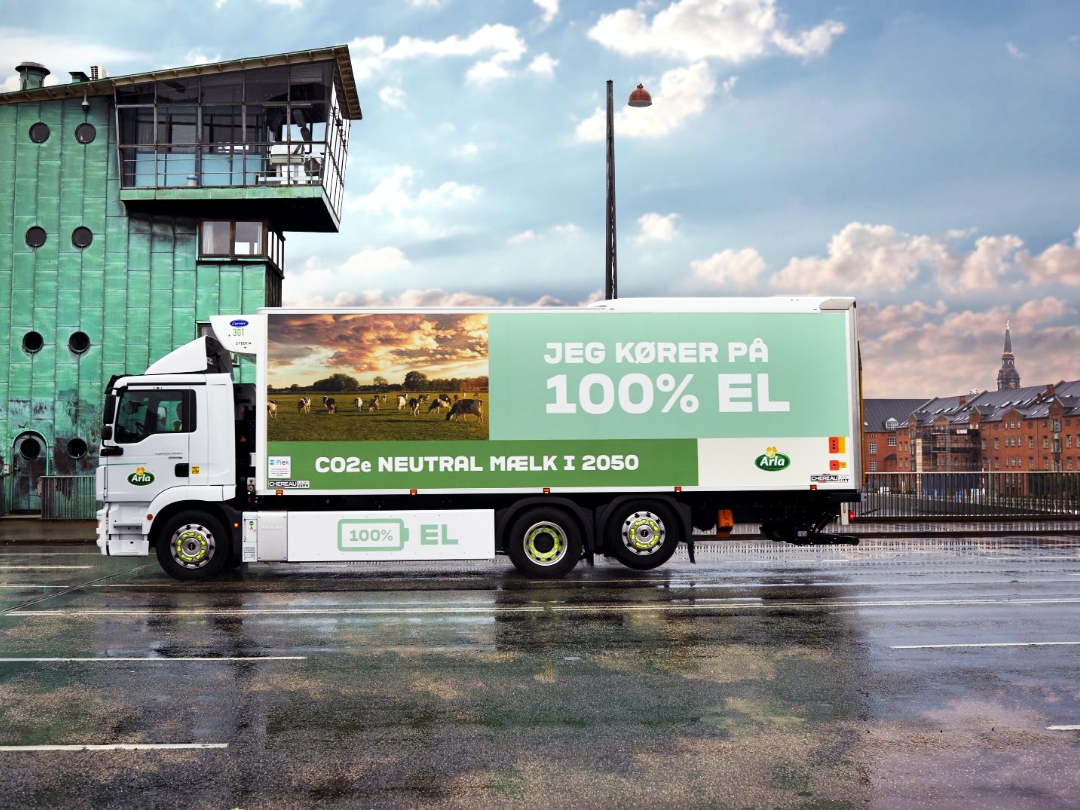

Agricultural cooperative Arla uses the MAN eTGM to supply businesses in Copenhagen with dairy products. The truck’s refrigeration system harnesses electricity directly from the vehicle’s battery.
Denmark: chilled organic milk from an electric truck
Many people consider Copenhagen to be a model of sustainability. By 2025, the Danish capital aims to become the world’s first carbon-neutral capital city. Arla intends to play its part in helping it to achieve this ambitious aim. This agricultural cooperative is one of the major suppliers of organic dairy products in Copenhagen, with some 200 trucks delivering to more than 2,600 businesses on a daily basis.
As its latest contribution to more sustainability, Arla has purchased an MAN eTGM for use as a milk truck. The vehicle, which is currently being field-tested, is the first electric truck weighing more than 18 tons to be deployed in Denmark. It generates no local emissions and runs on electricity sourced from wind turbines, for which Arla has obtained certificates of origin. “We are proud to have Denmark’s first large electric truck in our distribution fleet,” explains Helle Müller Petersen, Country Manager at Arla Denmark. A special feature of the MAN eTGM is that its newly developed refrigeration system harnesses electricity directly from the vehicle’s high-voltage battery. As a result, the organic milk is not only transported from A to B with the help of green power, but is also kept refrigerated during the journey using sustainable energy.
Norway: an eco-friendly heavyweight
26 percent of Posten Norge vehicles have already been fitted with an eco-friendly drive system. Now this publicly owned company has taken a further step toward achieving carbon neutrality: an MAN eTGM is the first fully electric 26-ton truck in Posten Norge’s fleet. This also marks the start of the conversion of the company’s medium-weight trucks, since the new vehicle is roughly three times larger than the previous distribution vehicles in the Norwegian postal service’s electric fleet.
The role played by this electric heavyweight is to deliver and collect parcel consignments to and from the distribution hubs in downtown Oslo. Here, the vehicle’s advantages are particularly obvious. Residents along its routes are delighted at how quiet the truck is; it no longer disturbs the sleep of Oslo’s inhabitants when used for night journeys. And, of course, combating climate change matters, too. “As the Norwegian national postal service, it is very important to us to have as many carbon-neutral vehicles as possible,” says Hans Øyvind Ryen, Executive Vice President Operations at the Posten Norge Group. “We have already done a great deal of work to make this a reality with suitable vehicles. The fact that we now have a 26-ton electric truck represents a further key step toward achieving our aim.”

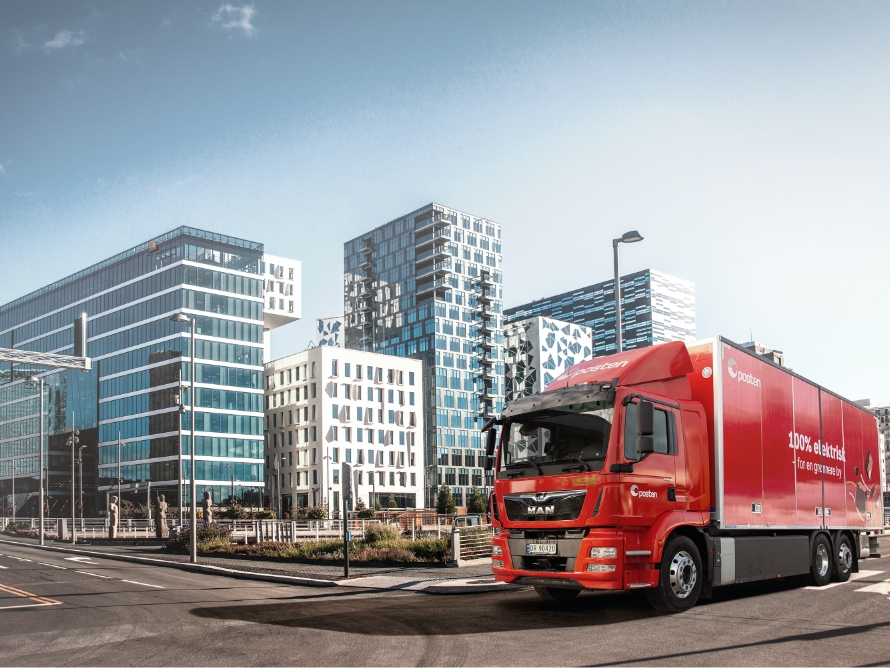
The role played by the MAN eTGM truck at Posten Norge is to deliver and collect parcel consignments. It shuttles between distribution hubs in downtown Oslo to do so.
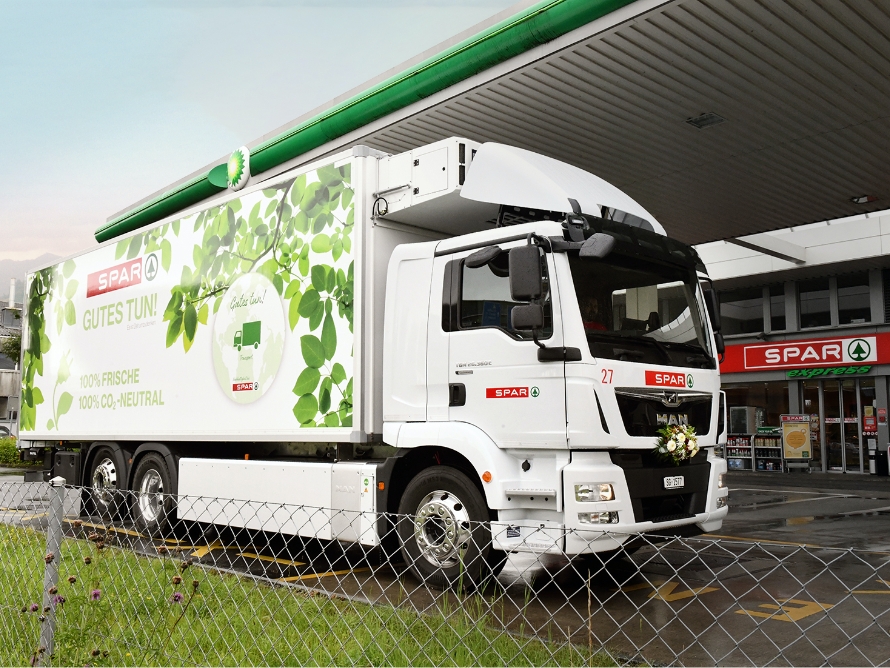

Another pioneering feat from the SPAR Group in Switzerland: the company uses the country’s first electric truck for deliveries to its stores in the Appenzell region and the canton of Thurgau, completely emission-free.
Switzerland: zero-emission food deliveries
At food retailer SPAR Switzerland, social responsibility and sustainability have long been part of the corporate culture. The company utilizes state-of-the-art building systems when building new SPAR supermarkets. Its refrigeration units use sustainable refrigerants, and its product range does not include any products that fail to meet animal welfare guidelines. The Swiss company also set high sustainability standards when launching its new own label, SPAR Natural. For example, it ensures that packaging is kept to a minimum and uses materials that can be recycled over and over again.
The distribution logistics hub of SPAR Group Switzerland, located in Gossau in the canton of St. Gallen, has similarly ambitious sustainability targets — and is determined to significantly reduce CO2 emissions associated with the transportation of goods. Back in 2011, the retailer deployed the first hybrid truck in Switzerland. With the MAN eTGM, it is once again leading the way, this time going a step further, with food deliveries to stores in the Appenzell region and the canton of Thurgau that are now completely emission-free. Compared with its predecessors, the eTGM saves up to 19,000 liters of diesel per year, which equates to a reduction in CO2 emissions of approximately 50 tons.
The MAN eTGM is proving its worth in day-to-day operations, showing that battery-powered electric delivery vehicles — even those weighing more than 16 tons — get the job done. In 2024, this electric truck will begin series production in Munich, where the MAN eMobility Center opened in June 2021. Here, employees at the MAN parent plant were trained in the manufacture of heavy-duty electric trucks under real-life conditions — for the TRATON GROUP, this represents a further key step in its quest to transform the transportation industry.





